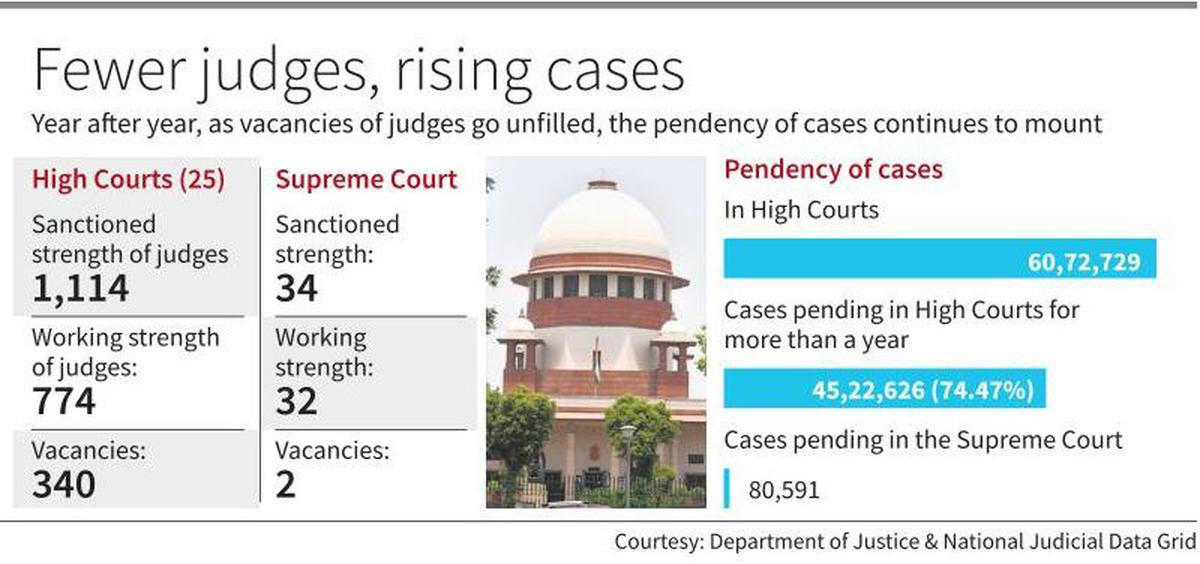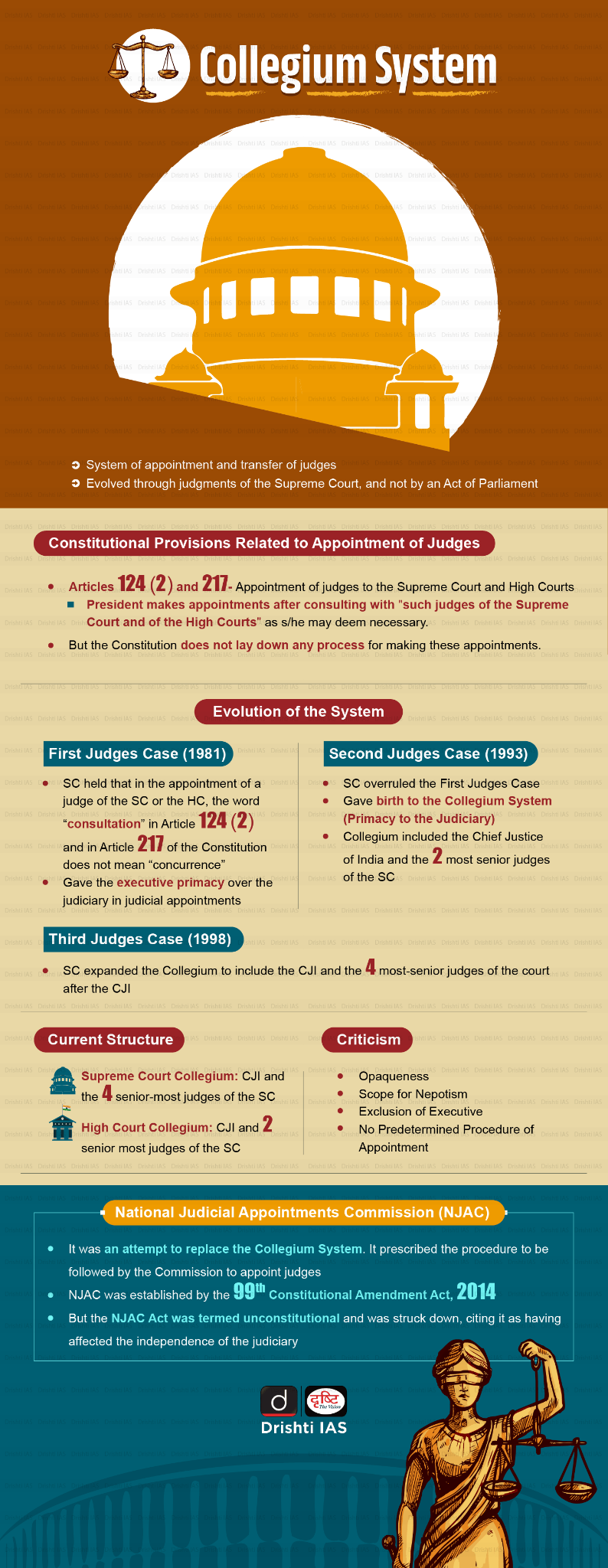Indian Polity
SC Concerned About Delayed Judicial Appointments
- 03 Oct 2023
- 5 min read
For Prelims: Supreme Court of India, Collegium System , Judicial Appointments
For Mains: Collegium System and its Criticism
Why in News?
Recently, the Supreme Court (SC) of India said the judiciary is losing fresh talent like never before as prospective candidates shortlisted for judgeships in High Courts give up their applications due to the government's prolonged inaction in processing High Court Collegium recommendations.
- The Attorney General of India was directed to provide updates on pending judicial appointments and transfers until 9th October, 2023.
What are the SC's Concerns Regarding Judicial Appointments?
- Prolonged Delays and Talent Drain:
- The Supreme Court has raised concerns about the significant backlog of 70 High Court Collegium recommendations pending with the government for over 10 months.
- This extended delay in processing recommendations has led to a talent drain within the Judiciary, as prospective candidates withdraw their candidature due to government inaction.
- Bright legal minds, eager to join the Bench, are withdrawing due to the uncertainty created by these delays.
- Controversial Segregation of Names:
- The government's practice of segregating names from Collegium-recommended lists is a matter of grave concern.
- Despite explicit forbidding by the Collegium, the government continued to segregate names, causing embarrassment and opposition to the Collegium's directions.
- This controversial practice has resulted in candidates withdrawing their candidature.
- Backlog of Appointments and Vacant Positions:
- The extensive backlog of High Court Collegium recommendations has left numerous judicial positions vacant across the country.
- The Memorandum of Procedure mandates prompt appointment of names reiterated by the Collegium, but this process is not being followed, causing further delays.
- Specific Pending Cases:
- The appointment of a Chief Justice to the Manipur High Court remains pending, causing uncertainty.
- Additionally, there has been no response from the government on 26 transfers recommended by the Supreme Court Collegium.
How are Judges Appointments Carried Out in India?
- Chief Justice of India (CJI):
- The President of India appoints the CJI and the other SC judges.
- As far as the CJI is concerned, the outgoing CJI recommends his successor.
- In practice, it has been strictly by seniority ever since the supersession controversy of the 1970s.
- The President of India appoints the CJI and the other SC judges.
- Supreme Court Judges:
- SC Judges are appointed by the President after consultation with the CJI and such other judges of the Supreme Court and the High courts as he deems necessary.
- The CJI and a panel of four senior-most judges of the Supreme Court, known as the Collegium, recommend the names of the candidates to be appointed as SC judges to the President.
- SC Judges are appointed by the President after consultation with the CJI and such other judges of the Supreme Court and the High courts as he deems necessary.
- Chief Justice of High Courts (HC) and Judges of HC:
- The Chief Justice of the HC is appointed by the President after consultation with the CJI and the governor of the state concerned.
- The judges of a HC are appointed by the President. High Court judges are recommended by a Collegium comprising the CJI and two senior-most judges. For appointment of judges, the chief justice of the concerned high court is also consulted.
- The Chief Justice of the High Court is also required to consult his two senior-most puisne Judges before recommending a name for appointment to the High Court.
Way Forward
- The government must expedite the processing of pending High Court Collegium recommendations to eliminate the backlog of appointments and fill vacant judicial positions promptly.
- The government should cease the practice of segregating names from the Collegium's recommendations and adhere to the Collegium's directions in appointing judges.
- Establish a transparent system to track and report on the progress of judicial appointments and transfers. Hold accountable those responsible for undue delays or non-compliance.
Legal Insights
UPSC Civil Services Examination, Previous Year Question (PYQ)
Mains
Q. Critically examine the Supreme Court’s judgement on ‘National Judicial Appointments Commission Act, 2014’ with reference to the appointment of judges of higher judiciary in India. (2017)








